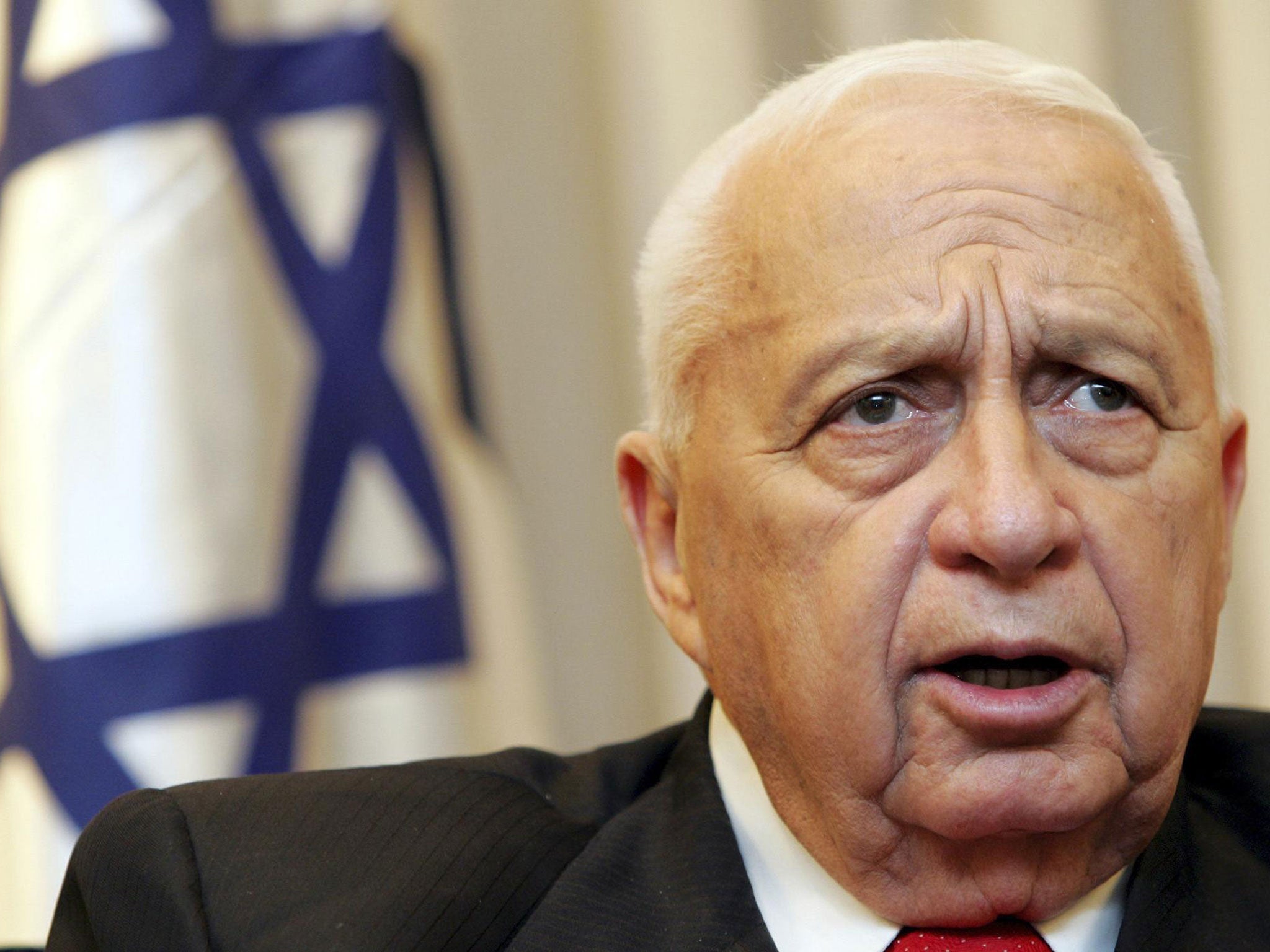Ariel Sharon dies aged 85: Barack Obama praises former prime minister for 'dedicating his life to the State of Israel'
The former Israeli Prime Minister suffered a rapid deterioration in his condition this week, which caused his organs to fail

World leaders have reacted to the death of Ariel Sharon, the former Prime Minister of Israel, and commented on his controversial legacy.
Barack Obama, President of the US, praised him for “dedicating his life to the State of Israel”.
He added: “We reaffirm our unshakable commitment to Israel's security and our appreciation for the enduring friendship between our two countries and our two peoples.
"We continue to strive for lasting peace and security for the people of Israel, including through our commitment to the goal of two states living side-by-side in peace and security."
The Prime Minister, David Cameron, paid tribute to him as "one of the most significant figures in Israeli history".
He added: "As Prime Minister, he took brave and controversial decisions in pursuit of peace, before he was so tragically incapacitated. Israel has today lost an important leader."
Mr Sharon died in hospital on Saturday at the age of 85.
Ariel Sharon dies: Former Israeli Prime Minister's life in pictures
Show all 12He had been in a coma since 2006, but suffered a rapid deterioration in his condition this week, which caused his organs to fail.
Shlomo Noy, the director of Sheba Medical Centre where he was treated, said Mr Sharon was in a “state of minimal consciousness with ups and downs” for the last seven years.
“During the past week, he struggled with surprising strength and determination against the deterioration in his condition and died peacefully,” he told a news conference.
“His heart weakened and he peacefully departed from his family, who were always at his side with love and support.''
At the end of December, a hospital spokesperson Zeev Rotstein described the leader’s condition as "critical", saying that his life was "in danger".
It was an emotional day for the country, where he was one of the most renowned but controversial leaders.
Obituary: Unlike his right-wing predecessors, he was ‘a pragmatist who could make concessions without feeling that he was committing sacrilege’
Medical background: The stroke from which there was no comeback
Ariel Sharon: A life in pictures
Ariel Sharon: A timeline of his life
Shimon Peres, the President of Israel, cried as he remembered his former political rival.
“He was an outstanding man and an exceptional commander,” he said.
“He knew no fear. He took difficult decisions and implemented them courageously.”
The current Prime Minister, Benjamin Netanyahu, called his predecessor a “great military leader”, adding that “his memory will live forever in the nation's heart”.
But to many Palestinians, he was a war criminal and hated enemy.
“We will remember Ariel Sharon as the man who killed, destroyed and caused the suffering for several Palestinian generations,” said Khalil Al Hayya , a leader of Hamas - the ruling Islamist group in the Gaza Strip.
“After eight years, he is going the same direction as other tyrants and criminals whose hands were covered with Palestinian blood.”
Lebanon's Daily Star newspaper reported that Palestinians at the Ain al-Hilweh, in south Lebanon, ”rejoiced“ at the news of his death.
“We wish he had fallen in battle,” they reportedly cheered, while playing revolutionary songs inside the camp.
Mr Sharon was long regarded as a standard bearer of the Israeli right after playing a leading role in both the Six Day War of 1967 and Yom Kippur conflict six years later.
After retiring from the Israeli army as a general, he joined the right wing Likud party and was swiftly promoted into the ministerial ranks.
Never one to shun controversy, he was accused, especially by the Palestinians, of being a warmonger and held responsible for many deaths.
He was labelled the ‘Butcher of Beirut’ by some after the deaths of as many as 3,500 Palestinian refugees in the massacre at the Sabra and Shatila camps in Beirut in 1982 when he was Israel’s defence minister.
In September 2000, during his ultimately successful bid to become prime minister he entered the Temple Mount complex in Jerusalem’s Old City with an escort of hundreds of security officials and declared that the site – the holiest in Judaism and third holiest in Islam - would remain under perpetual Israeli control.
Palestinians reacted with fury and many analysts argue that the visit was the trigger for what became the second Palestinian uprising, or Intifada.
His subsequent premiership was dominated by the resultant violence that led to the deaths of more than 1,000 Israelis and 3,500 Palestinians.
As a politician, be became known as "the bulldozer" for his bold tactics, contempt for his critics and hard-line approach.
He was elected prime minister in 2001.
In 2005, he directed the withdrawal of Israeli troops and settlers from the Gaza Strip, bringing an end to the country’s 38-year military control 0f the territory.
The move was seen as a shocking turnaround for Sharon, who had been a forerunner in the building of Jewish settlements in the captured area.
Later quitting the Likud Party, he formed a more central Kadima Party.
He appeared on his way to re-election, but suffered a stroke in January 2006 that left him in a coma. His deputy, Ehud Olmert, took over. A few months later, Olmert was elected prime minister.
At one point, Sharon was taken home briefly, but returned to the hospital where he has remained ever since. He occasionally opens his eyes and moves his fingers, but has remained incapacitated since his admission.
Subscribe to Independent Premium to bookmark this article
Want to bookmark your favourite articles and stories to read or reference later? Start your Independent Premium subscription today.
